Live Reporting
- We are expecting a news conference from UK Prime Minister Boris Johnson soon as he continues his daily briefings on the coronavirus outbreak.While we wait, here is a recap on the situation in the country:
- A third patient in Wales with coronavirus has died, taking the total number of deaths in the UK to 145 - with 3,269 confirmed cases
- Schools will close today to everyone except vulnerable children, and those with a parent identified as a key worker
- A-Level and GCSE grades in England will be awarded by teachers based on teacher assessments
- More than 65,000 retired doctors and nurses in England and Wales have been asked to return to work in the NHS to help tackle the outbreak
- The chancellor is set to announce a wage subsidy package to try to protect millions of jobs
- Data coming from Italy indicates the Covid-19 death rate for men is double that for women for all age groups, according to the White House coronavirus taskforce. It has just held a briefing with President Donald Trump in Washington.The US, Canada and Mexico have reached a deal to significantly curtail non-essential travel across their borders but they pledged that trade would not be affected.And the deadline for Americans to file income taxes has been moved from 15 April to 15 July.President Trump is taking questions now.
- Kenyan long-distance runner Eliud Kipchoge, who famously became the first athlete to run a marathon under two hours in Vienna last October, is keeping a video diary for the BBC while he's self-isolating.In the first edition, Kipchoge talks about the loneliness of the training runs without any partners."It's really hard to train alone because I value teamwork," he says. "I wake up as early as 06:00 to go for a run and make sure I stay fit."
Video content
- Canadian Prime Minister Justin Trudeau says Canada will send migrants seeking asylum at the border back to the United States.An influx of asylum seekers crossing at the US-Canada border has become a hot button political issue in recent years, and has intensified over coronavirus concerns.About 16,000 migrants crossed irregularly at the US border seeking refugee status in Canada in 2019, mostly in Quebec. Asylum seekers are typically given housing and certain social services while they wait for their claim to be evaluated.But the spread of Covid-19 has raised new concerns. Earlier this week, Mr Trudeau said asylum seekers would be held in quarantine but on Friday he said Canada and the US had reached an agreement that irregular border crossers would be sent back.On Wednesday, Mr Trudeau announced that he and US President Donald Trump had agreed to close the US-Canada border to all non-essential travel in an attempt to curb the spread of coronavirus.
- The US and Mexico have agreed to restrict "non-essential" travel across the common border, Secretary of State Mike Pompeo announces.
- Here’s the latest if you’re just joining us:
- Countries around the world are continuing to respond to the spread of coronavirus. The global death toll has passed 10,000 with cases now nearing 250,000
- China, where the virus originated last year, has reported no new domestic cases for the second day running
- In the US, California has told its residents to stay at home. New York's governor has closed all non-essential businesses and banned public gatherings
- Countries around Asia are stepping up their response. Sri Lanka has introduced a nationwide curfew and a state of emergency has been declared in the Indonesian capital
- European countries, which are now at the centre of the pandemic, are tightening restrictions further
- Cases across Africa have increased to around 850 and some South American countries are trialling curfews
We'll be bringing you the key updates throughout the day.And as always, you can find our latest stories on the coronavirus here. - As more and more people go into self-isolation in the UK, people are coming up with new ways to keep in touch with their neighbours.One man in Ripon, North Yorkshire, delivered red and green paper squares to the other houses in his street.He wants his neighbours to display green squares in their windows if they are OK, or red if they need help such as medicines or supplies.His neighbour, Beth Crompton, who posted the photo below, says: "Even if every house has green in the window it's nice when you look around the street to know everyone is OK."
- New York Governor Andrew Cuomo has ordered all non-essential workers to stay home as cases continue to rise in the state. He has also ordered a moratorium on all residential and commercial evictions for the next 90 days."Sixteen days ago, we were at zero. Today we are at 2,900. Those numbers are why we’re taking these actions."Mr Cuomo has also issued additional rules for citizens. Vulnerable individuals should only go outside for solitary exercise, avoid public transport, and wear masks. Non-vulnerable groups are barred from non-essential gatherings outside of private homes, including group exercise, and must practise social distancing of at least six feet (2m)."This is not life as usual," the governor said. "Accept it and realise it and deal with it."He noted the provisions, which go into effect Sunday, will be enforced through a civil fine and mandatory closure for any businesses not in compliance with this guidance.The governor said the surge in New York coronavirus cases was due to increased testing capability and that the state was testing more people per capita than China or South Korea, with 10,000 tests processed last night.
Video content
Everybody in the UK has been asked to stop non-essential contact with other people and avoid all unnecessary travel.This is known as social distancing.It follows people with flu-like symptoms - such as dry cough and high temperature - being asked to self-isolate at home, to avoid infecting others.Here's a handy guide to what you need to know about social distancing and self-isolation.- Authorities in Iran have urged the public to avoid family visits and days out at the start of the two-week holiday for Nowruz, the Persian New Year.But in the capital, Tehran, large numbers of people have defied the warnings, going out to buy gifts for their loved ones as they prepare for the holiday, the most important date in their calendar.For some, Nowruz provides opportunities for a family day out, and perhaps an encounter with Hajji Firuz, a folklore character similar to Santa Claus.But there's still plenty of evidence of the virus overshadowing everything. Firefighters have been out disinfecting the streets ahead of the festivities.
- We reported earlier that Spain had become the fourth country to register more than 1,000 deaths from the virus.But the country's Foreign Affairs Minister Arancha González has said the government hopes to flatten the curve of infection "within two weeks"."That’s the prognosis we're working with at the moment," she told us at the BBC. "It will rely on a co-ordinated approach and responsible behaviour from our citizens.""That's our hope and that’s where we're putting all our energy. Our entire country is embarked in a fight."Ms González also reassured Spaniards that there was a sufficient supply of equipment."We have a good stock of products and are purchasing more medical and sanitary equipment," she said.
- A further 39 people who tested positive for coronavirus have died, NHS England has announced.That brings the total number of confirmed reported deaths in England to 167.
- For UK citizens living in the south of Spain who try to leave, it’s not easy.Inside Malaga airport, the terminal is almost empty. Pretty much every check-in counter is closed. But at the British Airways desk, there is a queue of people, each standing a safe distance from the person in front.The flight is sold out. People in the airport tell us they have been asked to pay up €1,000 (£900; $1,070) for a one-way ticket to London. “I just want to get back to the UK,” one woman says.Philida Mary Jones, 86, has found a cheaper alternative on Ryanair to fly to Bristol. She’s turned up six hours early for her flight as she has had three earlier tickets cancelled.She lives in Spain for several months at a time and says she feels safe here, but her family in Wales are worried and want her home.In Benalmadena, a community of pretty villas stretching up a hillside with views over the sea, the streets are silent.Alison Thompson and her husband are not sure whether to leave. They have two dogs and would have to drive across Spain then take a ferry to reach the UK.The earliest date they can get a booking is exactly in a month’s time. But will the ferry journey expose them to people who might be infected? And would they escape one lockdown in Spain only to arrive in the UK in the middle of a new shutdown there?Hard choices with no easy answers.
- In Northern Ireland nine more people have tested positive for the virus, bringing the total number of cases to 86.It comes a day after it announced its first virus-related death - an elderly man in Belfast who had an underlying medical condition.
- The UK government has issued more advice on how pupil grades will be decided after the cancellation of GCSEs and A-levels exams.It says the grades in England will be based on teacher assessments - taking into account "a range of evidence and data", such as mock exam results and other school work.The government says the aim will be for the "calculated" grades to be awarded by the end of July.Students will also have other options - they can sit an exam early in the next academic year which starts in September - if they want to.They can also appeal if they are not satisfied that their calculated grade reflects their performance, or can choose to sit exams in summer 2021.
- The European Union may never recover if the bloc leaves Italy to fend for itself during the coronavirus pandemic, French Finance Minister Bruno Le Maire has warned, saying member states have to come together."If it's everyone for themselves, if we let down some states, if we say to Italy, for example, 'do it alone', Europe will not recover," he told French TV.The European Central Bank has earmarked funding to support the economy, but the EU has not harmonised practical measures to stop the spread of the virus.
- There are confirmed cases in every country in South America, but some have yet to report deaths. The biggest outbreak is in the largest country, Brazil, which has reported 621 cases and six deaths.Here are some major updates:
- Argentina's lockdown began at midnight with people now only permitted to leave their houses to do grocery shopping
- Chile's Congress has decided to postpone for six months a referendum on whether to rewrite the country's constitution. The vote was going to take place on 26 April, but more than 300 coronavirus have been confirmed in the country, the second-largest regional figure
- No-one is allowed to leave or enter Easter Island for the next two weeks in a bid to protect the remote Pacific outpost, its Chilean authorities said
- Brazil's Rio de Janeiro state is barring people from its beaches, including Copacabana and Ipanema while states and cities across the country have imposed other restrictions
- Colombia's capital, Bogota, is trialling quarantine plans before possible enforcement, with various cities already under night curfews
- A plane sent to Ecuador to pick up stranded tourists was prevented from landing at an airport in Guayaquil because the local mayor did not want the Spanish crew to disembark. The plane was later permitted to land in the capital, Quito
- We now hear the number of confirmed cases across Africa has increased to around 850 - almost six times the number recorded just a week ago.Countries across the continent have imposed a number of meausres in an effort to stem the spread of the virus - some, including Senegal and Tunisia, have suspended all religious gatherings.
- The UK government has always said it is relying on scientific advice to fight the pandemic, and the documents released on Friday (see our earlier entries) reveal the internal discussions of the scientists themselves.One disagreement was over when to close schools. One of the documents spells out how different models came up with very different results for how much closures would reduce the spread of Covid-19.Some said it would bring a reduction of between 20-60% while another suggested it would be 7.5-30%.Other insights include the age for people to be considered at risk. The government’s advice is aimed at over 70 - but behind the scenes scientists have been discussing a threshold of 65.And it’s clear that in developing the advice, there is a pessimistic view of how the British public will respond.It’s assumed that only 50% of households will abide by the request to self-isolate if one member shows symptoms of the virus and that even this “may be unachievable”.The scientists and the Home Office explored whether the measures would lead to public unrest but this was judged unlikely.
- Countries around Asia are stepping up measures to try to stem the spread of the coronavirus:
- Pakistan's largest city Karachi has recorded its first Covid-19 death, bringing the country's total deaths to three. The man was 77, and a cancer survivor. Meanwhile, the army has set up a field hospital in Karachi's Expo Center, and the governor of Sindh province has hinted that a three-day lockdown may be brought in to combat the spread, according to Dawn newspaper
- Sri Lanka has now introduced a nationwide curfew which will last from Friday evening until Monday morning. Mosques have also been ordered to shut indefinitely. So far, 65 people have tested positive for the virus in the island nation
- A state of emergency has been declared in Indonesia's capital Jakarta. Entertainment venues - like spas, cinemas and bars - will be closed, according to Reuters news agency. The city of 10 million people has recorded 215 cases so far, with 18 deaths
- Meanwhile, Singapore has launched an app to help trace people who have passed within two metres of someone who picks up the infection. It's not compulsory, but the government is encouraging as many people as possible to download it

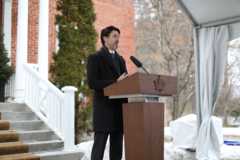
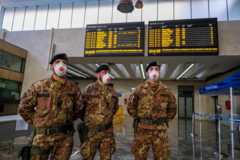
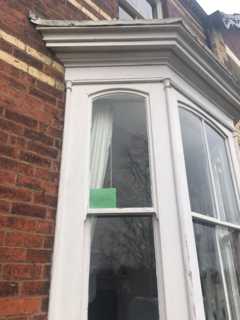
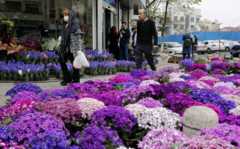
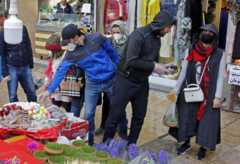
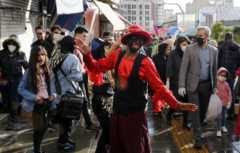
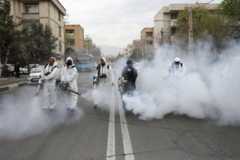
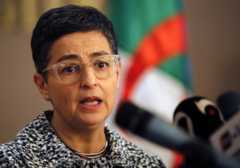

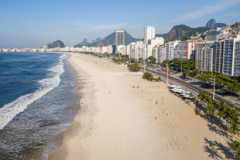

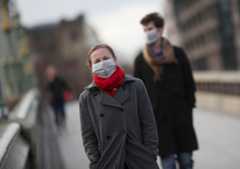
No comments:
Post a Comment